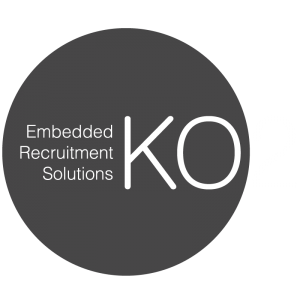Less than half a decade ago, the typical method of collaborating and communicating at work was face-to-face. Some conference calls might have been conducted remotely, and occasional team members may not have commuted to the office every day, but the majority of meetings in an engineering company would have been held in person and most collaborative work would have happened with everyone in the same room.
The COVID-19 pandemic changed a lot of things in our lives, but one of the longest-lasting impacts was how working remotely became the norm for a lot of industries. Even when the risks of the virus were minimised, a lot of engineering companies continued to let their employees work from home or adopt a hybrid model of working where daily in-person attendance wasn’t required.
There are plenty of benefits to allowing employees to work remotely, but one of the biggest drawbacks is that it doesn’t allow for face-to-face conversation. As a specialist recruitment agency in the electronics and embedded systems sector, we’ve hired candidates for plenty of remote and in-person engineering roles and have seen first-hand how a total lack of real-life contact can sometimes present challenges for a team and the business.
In this article, we’re going to discuss the importance of face-to-face communication at work, weigh up the advantages and disadvantages, and share ideas for how employers can create opportunities for face-to-face interaction at work.

Why Is Face-to-Face Communication Important?
We’ve got access to a lot of technology which means that it’s possible to replicate the experience of talking face-to-face with someone over a video call or even using VR technology. But the experience of interacting with colleagues or employees in real life is important, as demonstrated in a study by the Loughborough University School of Business and Economics and The Right Solution looking at the value of face-to-face communication.
Easier to Communicate
96.6% of people interviewed said that face-to-face meetings were their favourite way of communicating “with colleagues for day-to-day work and business success”. 78.4% of people also said that the most valuable part of face-to-face meetings was the opportunities for group interaction and discussion, with 51.1% also agreeing that there were “fewer barriers to communication” when meeting in person.
Negotiation is Easier
Another important finding of this study was that 89% of delegates interviewed said that face-to-face meetings contributed to more effective negotiations for contracts or business deals. When it comes to pitching to potential clients or conducting job interviews, being able to interact in real-time with the other people in the room often leads to much better results.
But why exactly is this? If you can have the same conversation over the phone or on a video call, what’s the benefit of conducting a face-to-face conversation?
Reading Non-Verbal Cues
Communicating face-to-face allows us as humans to pick up on a lot more non-verbal cues that the other person or people respond with, which helps us to conduct more intuitive and empathetic conversations. Even on a video call, you’re less able to gauge how someone is really feeling through their reactions and tone, which means that the conversation might feel more stilted and you may come away misunderstanding each other.
Building Trust
Face-to-face communication also helps to build trust between team members as you can read people’s genuine emotions much better and also learn more about their personalities through non-verbal cues. You’re much more likely to seem credible, honest and trustworthy when you communicate with someone in real life, which can help teams to grow closer together.
More Efficient Communication
Communication face-to-face is also important because it’s a lot faster than other methods, like email or instant messaging. It’s also likely to be more efficient, as if you’re confused you can instantly ask follow-up questions or clarify points instead of having to go back and forth over individual messages which won’t receive an instant response.
Fewer Misunderstandings
Leading on from that point, face-to-face contact instead of digital communication means that you’re less likely to be misinterpreted by your colleagues or employees. Conversations in-person are much better at showing your true intentions and feelings, which will minimise other people misreading your tone or getting the wrong idea from an email, potentially impacting a project or relationship.

Why Are Face-to-Face Meetings Important?
As the survey cited above shows, face-to-face communication in general is very important in helping everyone communicate more effectively. A lot of workplace communication happens in one-on-one conversations or passing chats as you move around the office, but what about the communication that specifically takes place in business meetings?
In an engineering company, face-to-face meetings might be held to discuss projects with a client, update employees on goals or performance, brainstorm ideas as a team or inform stakeholders and senior staff about progress. The rise of remote working has proven that it is 100% possible to conduct these kinds of meetings virtually with satisfying outcomes, but there are several reasons why holding these meetings in person is important.
Engagement
The first of these is that levels of engagement are much higher when you’re conducting a meeting face-to-face. It’s much harder to stay focused and easier to become distracted when you’re participating in a meeting through a screen, whereas actually sitting in the same room with employees helps to increase focus and makes everyone feel more engaged in the discussion.
In fact, in the study that we discussed above, the people interviewed ranked their engagement during face-to-face meetings at 85%, which is a relatively high score showing the benefits of this format.
Better Ideas
The second is that face-to-face meetings are much better environments for sharing ideas. A 2022 study conducted by Melanie S. Brucks and Jonathan Levav found that people given a creative task came up with 20% fewer ideas when they communicated over a video call on Zoom. In a later field study focused on engineers, the researchers found that participants produced a greater quality of ideas, and more innovative ideas, when they were working together in person.
The quality of brainstorming or discussing ideas is also dictated by other factors, such as how well a team knows one another, how confident they share feeling ideas and also just how inspired they are feeling on that day. But coming up with ideas is easier when people are talking face-to-face, which is a key reason why holding in-person meetings in an engineering company is important.
Company Culture
Finally, holding face-to-face meetings is an important part of developing and strengthening your engineering company’s culture.
Not only does it help employees to build relationships and form bonds with one another, but it also creates opportunities for conversation about topics outside of work. This helps a team get to know one another better and strengthens professional relationships by adding a personal element, as well as making future collaboration easier by making employees feel more comfortable together.
Company culture is a tricky thing to cultivate, and it can be even harder if you never actually get staff in a room together to bond and embody the values that matter to your business. When a team conducts a meeting face-to-face, they grow closer and get better at working together, both of which improve efficiency and increase the likelihood of innovation.

The Disadvantages of Face-to-Face Communication
Whilst there are plenty of benefits to face-to-face communication and evidence-backed reasons why it’s so important for an engineering company, there are some disadvantages to insisting that meetings and communication be done in person. Before we suggest the best ways to facilitate face-to-face interaction, it’s important to cover why some employees might not be so keen.
One of the drawbacks of face-to-face communication is that it might not be accessible to everyone that you want to be involved. Whether due to an employee’s location or due to a disability that makes it harder for them to come to an office for in-person work, you need to be considerate about insisting on face-to-face communication and accept that it won’t always be possible.
Speaking of accessibility, some employees may find it easier to engage with their colleagues over a video call, whether this is because they have more time to think through responses, don’t feel as self-conscious attending virtually, or find it less anxiety-inducing to speak up in a virtual meeting. In many cases, face-to-face conversation leads to better discussions, but for some neurodivergent people that might not be the case.
There may also be cases where a meeting might not be necessary or appropriate for a certain discussion and something like an email or a notice would have done the job just as well. If you’re going to push for face-to-face communication, make sure that you only do so when the situation demands it.
Establishing Face-to-Face Interaction in Your Engineering Business
If your engineering company has changed the way that employees work, and now has a workforce that isn’t permanently on-site or in an office, it can be difficult to know how best to set up face-to-face meetings and facilitate this kind of in-person interaction amongst your employees.
There are as many benefits to remote working as there are to having a team in the workplace every day, which is why hybrid working is one of the best options for engineering companies with employees that don’t always need to be on-site. Whether you have a permanent office or give employees access to a shared coworking space, this gives engineers the freedom to choose how they want to work and still encourages face-to-face contact without making it mandatory.
Hybrid working can involve letting employees choose when they want to work remotely, or it might involve having set office days when everyone is there in person. This may also differ between teams depending on the size of the organisation and the kinds of work done in each department.
If you want to facilitate more face-to-face communication and collaboration in your engineering business, it can also be useful to create a set of guidelines for the kinds of meetings or discussions that need to happen in person. This way, teams know when they need to get together in real life for certain tasks and it removes any ambiguity about what face-to-face communication is for.
However, as we previously mentioned, make sure that there is also guidance about what doesn’t need to be a face-to-face discussion to ensure that, when these meetings do happen, they’re worthwhile. Also be conscious of making these meetings as accessible as possible for people that may find them more challenging, and ensure that anyone that cannot attend in person doesn’t miss anything important.

Summary
Remote and hybrid working is definitely a workplace trend that is here to stay, so understanding the importance of face-to-face communication at work and knowing what it’s most useful for will help you to prioritise tasks and conversations that need to be done in person. Our recruitment work in the engineering industry has shown us how many companies have adapted to remote and hybrid employees whilst still managing to maintain company culture and build effective working relationships, but this does take a conscious effort and acknowledgement of why face-to-face meetings aren’t always necessary.
If you’re an engineering company looking for remote, hybrid or locally based candidates in the embedded systems or electronics industry, KO2 is a specialist recruitment agency that can help. Find out more about our recruitment services or get in touch to speak to our team.







